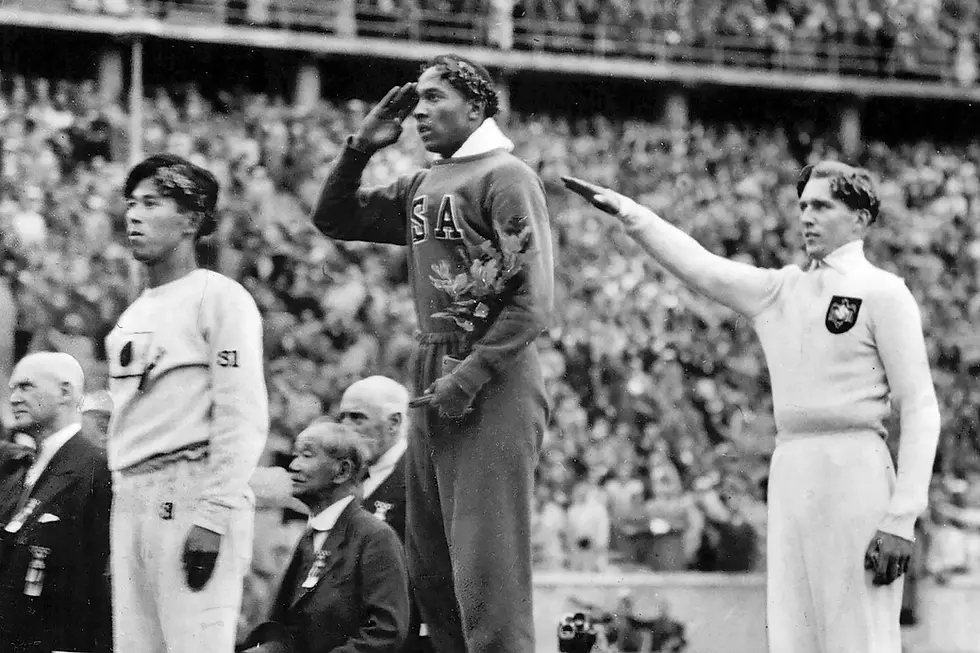Jesse Owens at the Berlin Olympics: Triumph Against All Odds
- icönik

- Aug 6, 2025
- 2 min read

Breaking Barriers: Jesse Owens’ Unforgettable Feats in Berlin
The 1936 Berlin Olympics stand as a defining moment in sports history, where Jesse Owens shattered not just records but also the myth of Aryan supremacy. Against the backdrop of Nazi propaganda and a politically charged environment, Owens' incredible athleticism and resilience brought global attention to his legacy.
Jesse Owens: A Brief Background
Born James Cleveland Owens on September 12, 1913, in Alabama, Jesse Owens rose from humble beginnings to become one of the greatest athletes of all time. His journey to the Berlin Olympics was marked by grit, determination, and a relentless pursuit of excellence.
The Berlin Olympics: A Political and Cultural Crossroads
The 1936 Olympics were hosted by Nazi Germany, under Adolf Hitler’s regime, as a platform to showcase Aryan superiority. The event was heavily propagandized, aiming to present Germany as a powerful and unified state. However, Jesse Owens' stellar performance disrupted these narratives and provided a stark contrast to the racial ideologies of the time.
Owens' Record-Breaking Performances
Jesse Owens achieved what seemed impossible at the Berlin Olympics:
Four Gold Medals: Owens won gold in the 100 meters, 200 meters, long jump, and 4x100 meter relay, making him the first American track and field athlete to win four gold medals in a single Olympic Games.
World Records: He set three world records and tied another, leaving the world in awe of his speed, agility, and strength.
Symbol of Unity: His victories transcended the sports arena, symbolizing hope and equality in an era of division and prejudice.
The Long Jump Story
One of the most memorable moments came during the long jump, where Owens faced stiff competition from German athlete Luz Long. Despite being competitors, Long offered Owens advice, which helped him secure the gold medal. Their sportsmanship became a testament to camaraderie and mutual respect, even amid the political tensions of the time.
Defying Hitler and Nazi Propaganda
Jesse Owens' victories directly contradicted Adolf Hitler's propaganda, which sought to prove the racial superiority of Aryans. Owens' triumphs embarrassed the Nazi regime, forcing Hitler to reconsider attending medal ceremonies.
The Global Impact
Owens' success resonated worldwide, making him a symbol of racial equality and the unyielding spirit of athletes. His story inspired millions and paved the way for future generations to break barriers in sports and beyond.
Legacy and Lessons from Jesse Owens
Jesse Owens' achievements are more than a record of sporting excellence—they represent the triumph of the human spirit against injustice. Despite facing racism at home in the United States and abroad, Owens remained humble and dedicated to his craft.
A Trailblazer: Owens’ legacy lives on as a source of inspiration for athletes, activists, and leaders around the globe.
Historical Relevance: His story reminds us of the importance of courage, perseverance, and standing for what is right, even in the face of adversity.
Conclusion: A Hero Beyond Sports
Jesse Owens at the Berlin Olympics proved that greatness knows no bounds. His performance was not only a victory for himself but a statement to the world that talent and determination transcend race, politics, and prejudice.
Call to Action:
Explore more about Jesse Owens’ life and legacy to see how one man’s incredible feats forever changed history. Share this article to inspire others with the story of a true trailblazer!
























































Comments